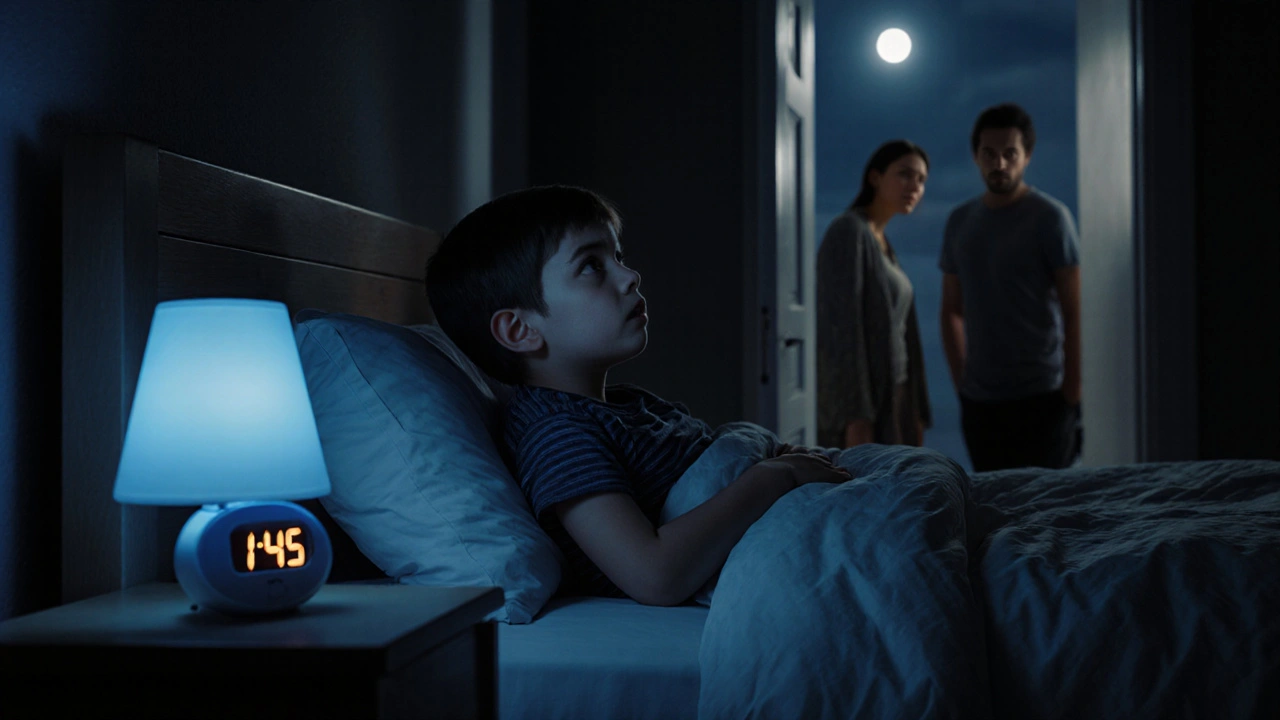Delayed Sleep Phase Syndrome: Causes, Symptoms, and How to Manage It
When dealing with Delayed Sleep Phase Syndrome, a disorder of the body's internal clock that pushes the sleep window later than the typical 10 pm–6 am schedule. Also known as DSPS, it falls under the broader group of circadian rhythm disorders and often involves irregular melatonin release patterns. In simple terms, the body’s natural “night‑time hormone” shows up at the wrong hour, making it hard to fall asleep at conventional times and leaving you groggy in the morning. Understanding Delayed Sleep Phase Syndrome is the first step toward fixing a schedule that feels out of sync with the world around you.
How DSPS Connects with Everyday Health Topics
DSPS doesn’t exist in a vacuum. Light exposure, diet, and even certain medications shape the condition. For many, bright screens late at night suppress melatonin production, nudging the internal clock further back. Research links vitamin D and B12 deficiencies – topics covered in our guide on mood‑disorder nutrition – to disrupted sleep patterns, suggesting that a nutrient shortfall can exacerbate DSPS symptoms. Stress hormones, caffeine, and binge‑watching also feed the problem, while genetics can set the stage for a naturally later chronotype. A useful tool for clinicians is chronotherapy, which schedules light exposure and melatonin dosing to gradually shift the sleep‑wake cycle earlier. Think of it as a timed reset button that leverages the body’s own timing mechanisms.
Practical management starts with solid sleep hygiene: dim the lights an hour before bedtime, keep a consistent wake‑up time (even on weekends), and limit stimulating activities after dusk. When hygiene alone isn’t enough, timed melatonin supplements – taken 30‑60 minutes before the desired bedtime – can bridge the gap, especially when combined with morning bright‑light therapy. Cognitive‑behavioral approaches for insomnia (CBT‑I) complement these tactics by reshaping thoughts and habits that keep the brain alert at night. For those who need medication, our articles on safely purchasing generic drugs online offer step‑by‑step guidance, ensuring you get the right prescription without falling prey to scams. Together, these strategies form a layered plan: adjust the environment, support the hormone cycle, and, if necessary, use targeted therapies.
Below you’ll find a curated list of articles that dive deeper into each of these angles – from vitamin‑deficiency impacts on mood and sleep to safe online purchasing of melatonin and other sleep‑aid medications. Browse the collection to discover actionable tips, scientific explanations, and resources that can help you bring your sleep schedule back in line with daily life.

Delayed Sleep Phase Syndrome in Kids: Signs, Symptoms & Treatment Options
Learn to spot Delayed Sleep Phase Syndrome in children, recognize its symptoms, and explore effective treatments like melatonin, light therapy, and behavioral strategies.
